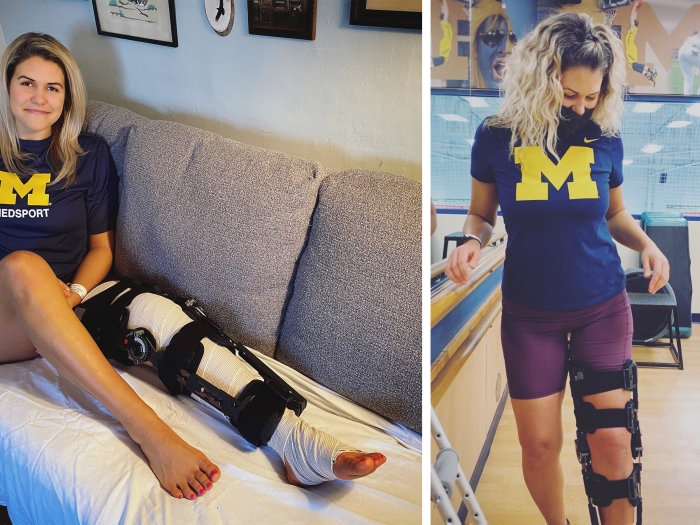Author |
This year’s Doximity Residency Navigator results are in and an impressive 13 of the University of Michigan Medical School’s residency programs secured spots in the top 10. In addition, six residency programs came in strong with a ranking in the index’s top 20.
Nationwide, surgery ranks No. 1 out of 345 residency programs, while Otolaryngology and Urology rank No. 2 out of 128 and 146 residency programs, respectively. Plastic Surgery ranks No. 3 out of 86 residency programs.
The other top-10 residency programs at the U-M Medical School include Anesthesiology (7), Dermatology (10), Internal Medicine (7), Med-Peds (7), Neurology (9), Obstetrics and Gynecology (9), Ophthalmology (6), Pathology (Clinical) (4) and Radiology-Oncology (8).
Child Neurology (20), Emergency Medicine (12), Neurosurgery (14), Pediatrics (17), Psychiatry (19) and Radiology (12) were all listed in the top 20.
“Doximity’s Residency Navigator results highlight that the excellence of Michigan Medicine’s graduate medical education programs are broadly recognized,” said Debra F. Weinstein, M.D., executive vice dean for academic affairs at the U-M Medical School and chief academic officer for Michigan Medicine. “We are proud that so many of our programs are recognized as being among the very best, and we will continue to work to optimize the experience of everyone who trains here.”
Doximity is the largest online professional network for physicians in the United States. Its comprehensive physician database includes every U.S. physician as identified by their National Provider Identifier number.
Doximity’s Residency Navigator is a tool designed to assist medical students with making informed residency-related decisions. It also aims to provide transparency to applicants throughout the residency match process. According to their website, the Residency Navigator is comprised of three major parts: current resident and recent alumni satisfaction data, reputation data and objective data.
While satisfaction data is derived from satisfaction survey responses from each residency’s current residents and recent graduates, reputation data is derived from nomination survey responses. This portion is limited to board-certified physicians in that specialty and is alumni weighted. Lastly, objective data is compiled from a variety of public sources, including the Doximity database, which covers all U.S. physicians.
“These results reflect the high degree of expertise and commitment of our residency program directors, as well as our exceptional teaching faculty,” said J. Sybil Biermann, M.D., associate dean for graduate medical education at the U-M Medical School. “We are so honored to be recognized in this way.”
For more information about the residency programs at U-M Medical School, visit medicine.umich.edu/medschool/education/residency-fellowship.
To learn more about Doximity’s Residency Navigator results, visit doximity.com/residency/.
About Michigan Medicine: At Michigan Medicine, we advance health to serve Michigan and the world. We pursue excellence every day in our five hospitals, 125 clinics and home care operations that handle more than 2.3 million outpatient visits a year, as well as educate the next generation of physicians, health professionals and scientists in our U-M Medical School.
Michigan Medicine includes the top ranked U-M Medical School and University of Michigan Health, which includes the C.S. Mott Children’s Hospital, Von Voigtlander Women’s Hospital, University Hospital, the Frankel Cardiovascular Center, Kellogg Eye Center, University of Michigan Health West and the Rogel Cancer Center. The U-M Medical School is one of the nation's biomedical research powerhouses, with total research funding of more than $500 million.

Department of Communication at Michigan Medicine




